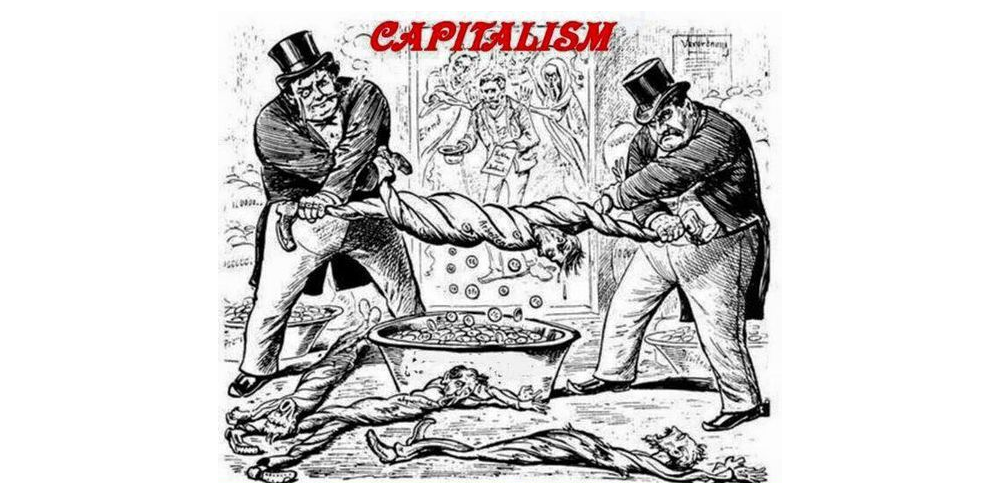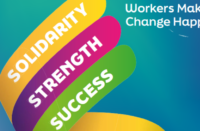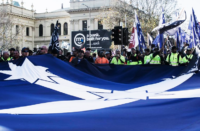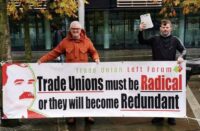The new year begins with no let-up in the assault on the working class. The cost of food, clothes, heat, rent and mortgages continues to rise. Homelessness is increasing.
The election of Leo Varadkar as taoiseach will probably result in an intensification of this assault, in the interests of native capitalism and foreign imperialism. The opposition in the Dáil would have us believe that an election is the answer to all the problems besetting Irish society, whereas the majority of them would leave intact the main cause of all our ills: the capitalist system, and Ireland’s position within the imperialist system.
Under capitalism, the only way of ensuring that Irish workers can protect and indeed improve their living standards is through pay increases. The only way to ensure pay increases is by utilising their collective industrial muscle through the trade union movement.
Many Irish workers do not see the relevance of trade unions in today’s economy. Many have succumbed to a sense of fatalism, believing they are lucky to have a job and that they have no choice but to accept what the bosses offer. Others have bought in to the spin that we are all one big team, united in a common endeavour.
Capitalists, despite the propaganda spewing from their influencers in the media, do not employ people out of a sense of philanthropy: they employ workers merely in order to enrich themselves by appropriating the surplus value produced by workers. The recent job losses in the tech sector show that no worker, no matter how hard they work, is guaranteed a job under capitalism. The only way to resist job losses is through trade union organisation.
Even if trade union action cannot prevent job losses, it can force companies to pay increased redundancy settlements. The nature of modern capitalism also means that these jobs can be moved abroad, irrespective of union action.
We are experiencing an intensification of the class war, with the capitalist class in the ascendant. However, the capitalist class is not omnipotent, and it has weaknesses. The covid pandemic and the resultant lockdowns showed that workers in specific areas of the economy have far more leverage because of their strategic position in the production process. Transport workers (railways, buses, and freight), power workers and retail workers were essential in ensuring that the capitalist economy functioned.
Strike action by any or all of these groups of workers would cause more problems for the greatest number of capitalists. (As a former bus worker and former teacher, I know that a transport strike focuses the minds of the capitalist class and their political representatives far more than a teachers’ strike!) Improved wages for these workers would spread to other unionised areas of the economy and put greater pressure on the Government to increase social welfare payments.
Already the capitalist media are getting worried that the assault on the working class will result in increased militancy. In the Business Post on 4 December, John Walsh, in an alarmist article, claimed that unions did a lot of damage to the economy in the 1970s and 80s. The reality was, of course, different. The damage to the Irish economy was a result of EEC membership, which destroyed many Irish-owned industries, and also a result of developments in international capitalism.*
It takes more than wishful thinking to effect change: it takes work and organisation. It is the task of all of us on the left to campaign and encourage non-unionised workers, particularly those in key sectors of the economy, to join their relevant union.
Because of the weakness of the political left, there is a danger that some may slip into syndicalism and see trade union action as the vehicle for overthrowing capitalism and building socialism. Trade union struggles can lead to improvements in pay and conditions; they also expose the nature of capitalism and the capitalist state to those involved. However, the struggle against capitalism is a political struggle, and as Marxist-Leninists our task is to campaign for class politics within the trade union movement, and within all organisations of the people that come into conflict with capitalism.
Our task in the coming year is to build a stronger Communist Party which is more firmly embedded within the working class.
*Business Post, 4 December 2022, p. 28.






